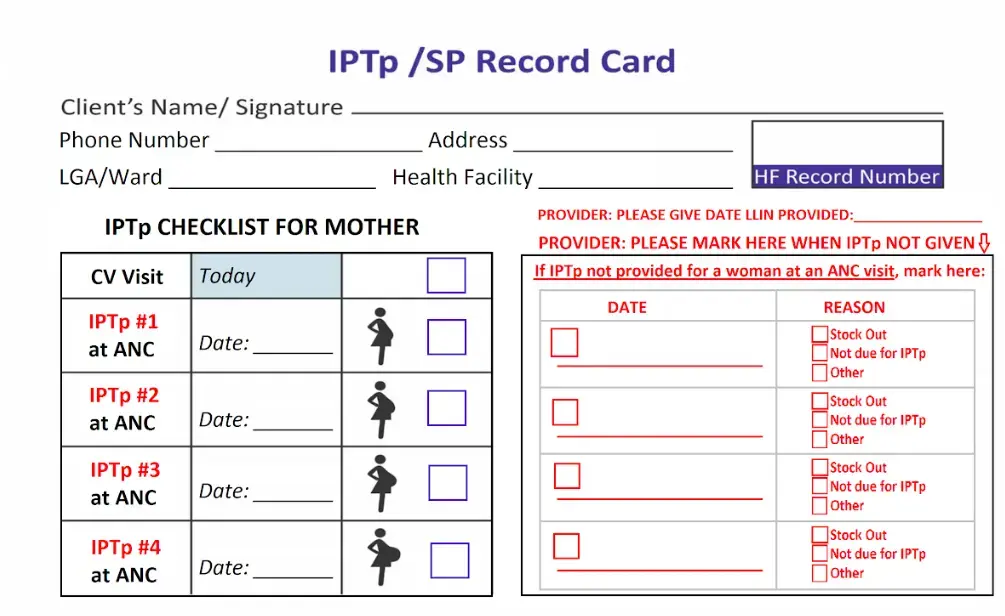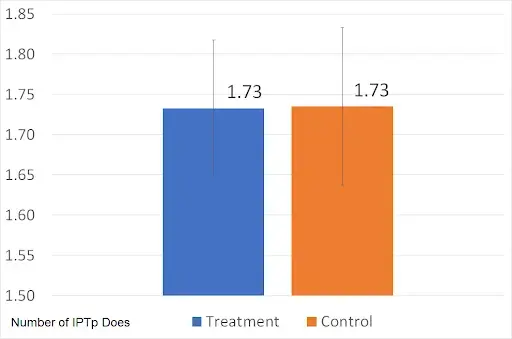Preventing malaria during pregnancy

Pills in palm of hand
What was the challenge?
The US Agency for International Development (USAID) Nigeria supports efforts to decrease the number of malaria-related deaths in pregnant women and children. Intermittent preventive treatment (IPTp), which is a full course of antimalarial medicine given to women at routine health care visits during pregnancy (also known as antenatal care visits or ANC), reduces chances of placental malaria and increases the likelihood of healthy outcomes for mothers and babies. However, in 2015, only 19% of Nigerian women received the recommended three or more IPTp doses during their last pregnancy.

What was the program change?
OES, USAID and the implementing partner, John Hopkins University (JHU), redesigned the referral process in two ways: 1. Engagement with husbands: The checklist that Community Volunteers (CVs) use while doing household visits with pregnant women was modified to include a specific script for engaging male partners. 2. A redesigned record card: The form that CVs use to refer women to ANC was modified to make it easier to use for a low-literacy population, in the form of a pictorial record card.

How did the evaluation work?
Half of the 72 wards in Kebbi State, Nigeria were randomly assigned to receive the two-pronged intervention. Prespecified ANC and IPTp outcomes - women taking at least one dose of IPTp, as well as the number of doses of IPTp taken at ANC or elsewhere - were compared across 10,000 women from the treatment and control wards.
What was the impact?
The results suggest the intervention did not change the number of women taking at least one dose of IPTp or the average number of doses of IPTp at ANC or elsewhere. There is suggestive exploratory evidence that the intervention may have influenced beliefs about IPTp: the intervention was associated with a small statistically significant increase in the number of IPTp doses that mothers report that pregnant women should take (from 3.07 to 3.30).
Verify the upload date of our Analysis Plan on GitHub.
